
02-02-2026 21:46
Margot en Geert VullingsOn a barkless poplar branch, we found hairy discs

02-02-2026 14:55
 Andgelo Mombert
Andgelo Mombert
Bonjour,Sur thalle de Lobaria pulmonaria.Conidiome

02-02-2026 14:33
 Andgelo Mombert
Andgelo Mombert
Bonjour,Sur le thalle de Peltigera praetextata, ne

31-01-2026 10:22
 Michel Hairaud
Michel Hairaud
Bonjour, Cette hypocreale parasite en nombre les

02-02-2026 09:29
 Bernard CLESSE
Bernard CLESSE
Bonjour à toutes et tous,Pour cette récolte de 2

01-02-2026 19:29
 Nicolas Suberbielle
Nicolas Suberbielle
Bonjour, Marie-Rose D'Angelo (Société Mycologiq

31-01-2026 09:17
 Marc Detollenaere
Marc Detollenaere
Dear Forum,On decorticated wood of Castanea,I foun

29-08-2025 05:16
 Francois Guay
Francois Guay
I think I may have found the teleomorph of Dendros

30-01-2026 21:20
Arnold BüschlenBryocentria brongniartii und B. metzgeriae mit ihr
Lachnellula subtilissima ?????
Blasco Rafael,
27-05-2014 14:41
 Hola Tengo en rama esta Posible Lachnellula Recogida caida Abies alba,
Hola Tengo en rama esta Posible Lachnellula Recogida caida Abies alba, de 1-2 mm de diámetro, Altura Similares,
Parafisis cilíndricas, septadas 2,5 X - X 3, Alguna que PARECE lanceolada X 4
Esporas 8-13,X 2,5-3, 2
ASCAs J- o Positivo muy devil , vistas muy ASCAs Pocas, 62-75 X 6,2-7
Pelos con granulaciones, septados,con el apice redondeado 3,5-4, 5 X 120
Un saludo
Rafael
Hans-Otto Baral,
27-05-2014 16:51

Re : Lachnellula subtilissima ?????
Spore size is a bit large but I suspect L. subtilissima.
Blasco Rafael,
27-05-2014 17:23

Re : Lachnellula subtilissima ?????
Hola Zotto.
la mayoria de esporas esta entre 8--10 x 2,6--3, luego hay algunas que llegan a 12--13 micras,
Que otra opcion podria acercarse ????
Rafael
la mayoria de esporas esta entre 8--10 x 2,6--3, luego hay algunas que llegan a 12--13 micras,
Que otra opcion podria acercarse ????
Rafael
Martin Bemmann,
27-05-2014 22:48

Re : Lachnellula subtilissima ?????
Hi Zotto,
if I see an IKI-reaction of the ascus porus at all, it is blue in picture no. 13. Shouldn't it be a hemiamyloid reaction for subtilissima (red)?
Regards
Martin
if I see an IKI-reaction of the ascus porus at all, it is blue in picture no. 13. Shouldn't it be a hemiamyloid reaction for subtilissima (red)?
Regards
Martin
Hans-Otto Baral,
27-05-2014 23:19

Re : Lachnellula subtilissima ?????
I see no other option for your fungus.
What Martin says is probably because your Lugol is yellowish rather than red-brown, i.e. diluted. Then you get blue in that species (type RB, blue at low concentration).
I attach my key to the species of Lachnellula.
Zotto
What Martin says is probably because your Lugol is yellowish rather than red-brown, i.e. diluted. Then you get blue in that species (type RB, blue at low concentration).
I attach my key to the species of Lachnellula.
Zotto
Martin Bemmann,
27-05-2014 23:28

Re : Lachnellula subtilissima ?????
Yes you are right Zotto. Rafael's IKI-pictures are very pale and the iodine concentration possibly too low.
Regards
Martin
Regards
Martin

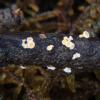
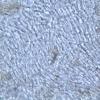
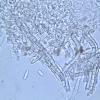
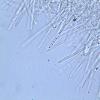
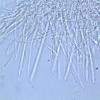
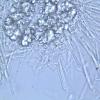
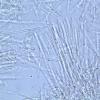
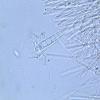
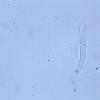
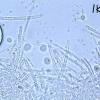
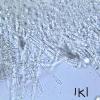
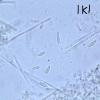
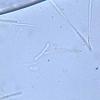
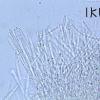
 Lachnellula-Baral-2008-0001.pdf
Lachnellula-Baral-2008-0001.pdf